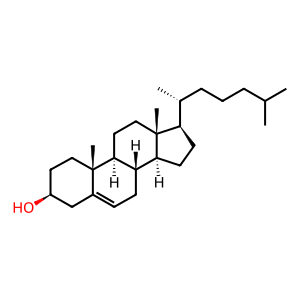Reaction: NPC1L1-mediated cholesterol uptake
- in pathway: Intestinal lipid absorption
Dietary cholesterol is taken up into enterocytes from the gut lumen in a reaction mediated by plasma membrane-associated NPC1L1 protein. This role for NPC1L1 was first observed in studies of a mouse model system (Altman et al. 2004). Subsequent studies of human cultured cells confirmed the participation of NPC1L1 in cholesterol transport across membranes but suggested that this transport process might not be a major factor in dietary cholesterol uptake (Davies et al. 2005). Detailed studies in Maden-Darby canine kidney cells, both mediated by endogenous (canine) NPC1L1 and by overexpressed human protein, indicate a major role for NPC1L1 in the uptake of extracellular cholesterol. These studies have also shown that ezetimibe binds both human and canine proteins and renders them incapable of mediating cholesterol uptake. The molecular mechanisms of cholesterol transport and ezetimibe inhibition, however, remain unclear (Weinglass et al. 2008).
Reaction - small molecule participants:
CHOL [cytosol]
CHOL [extracellular region]
Reactome.org reaction link: R-HSA-265443
======
Reaction input - small molecules:
cholesterol
Reaction output - small molecules:
cholesterol
Reactome.org link: R-HSA-265443

